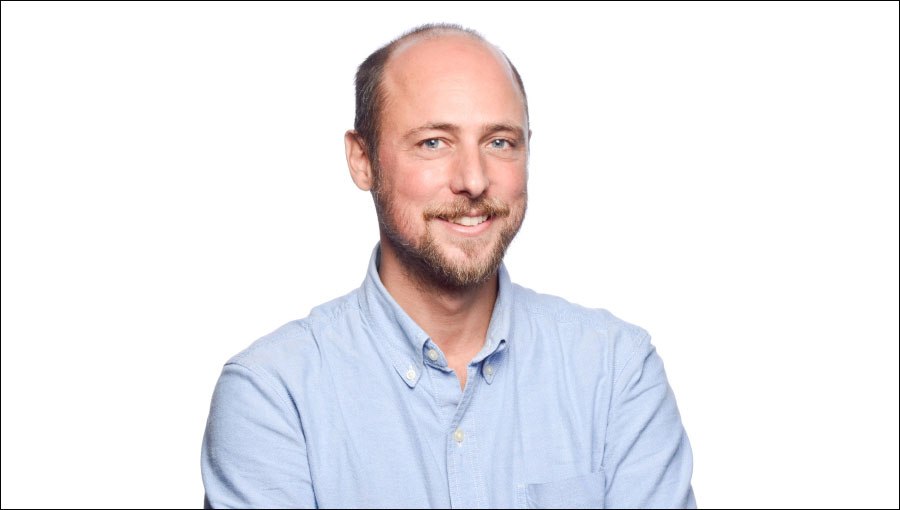The Success of Failure: Meet JCU Alumnus Enrico Barchiesi
Alumnus Enrico Barchiesi graduated in 2021 with a B.A. in Business Administration and a minor in Entrepreneurship. When he was 21, he co-founded the startup EasyDesk, which he later transformed into Meravit, a data science and IT consulting agency.

What brought you to JCU?
Before studying at JCU I had completed a bachelor’s degree in construction engineering, but I knew that was not my path. During my engineering studies, a friend of mine and I created EasyDesk, a booking system tailored to universities. Looking for a career change, I went to an open day at JCU where Professor Silvia Carnini Pulino presented the minor in Entrepreneurship. That’s when I realized I could study what I was doing as a hobby. One month after getting the engineering degree, I decided to start a new B.A. at JCU, where I majored in Business Administration and minored in Entrepreneurship.
I chose JCU to learn more about business and all the subjects related to it. While engineering provided me with a strong foundation in critical thinking, I wanted to complement it with knowledge in business, management, and entrepreneurship. Moreover, JCU gave me the opportunity to take courses in strategy, economics, finance, marketing, and communication – subjects with real-world relevance that matched my interests.
What inspired you to start Meravit?
Meravit is a consulting company specialized in Data Science and IT. We took EasyDesk, the startup we had launched in 2020, and rebranded it completely. With EasyDesk we were struggling to grow with a subscription-based business model. At the same time, we were also receiving requests to develop tailor-made software. Therefore, after providing Data Science and IT consulting services for a few years, we decided to fully embrace this pivot and present ourselves as a consulting company. Since then, we have worked with clients across multiple countries and industries, including the public sector, retail, banking, and education, with lifetime revenues above half a million euros.
What are the main challenges you had to face in developing Meravit?
The main challenge for us was convincing our clients that we offer better value for money than the other consulting companies out there. We do so by being extremely customer-centric and transparent. Moreover, we believe that our clients’ trust is not a given, but a responsibility we must constantly earn. This is why we take ownership of the projects we work on. We don’t stop at a power point, but we stay for the implementation and delivery of our recommendations. Scaling up a consulting business is also quite challenging. Revenues and costs tend to increase at similar rates, making it a less appealing option for investors. At the same time, in today’s society there is a strong need for our skills. This is especially true for the Italian market, which is not as saturated as others. Therefore, our strategy is to offer our know-how to Italian businesses that are currently digitalizing their operations and that want to apply a more data-driven approach.
What are the lessons you have learned and the suggestions you would give to JCU students wishing to become entrepreneurs?
The first lesson I have learned is that you have to be a specialist at being a generalist. In other words, you have to be good at knowing just enough of many different things. This allows you to find a good-enough solution very quickly. It’s important for several reasons. For example, imagine you have to manage the finances of your company: you may not have the time to create the balance sheet to the standards required by the law, but you should definitely be able to talk to your accountant and understand every line of your financial statement. Or you may have to create a landing page for your website, but don’t have the money to pay a web developer: learn to use no-code website builders and get your site up and running in a short amount of time.
Having a good general understanding of different domains can really make the difference between just having an idea and turning it into something real.
Years ago, I used to perceive my entrepreneurship experiences as if I were riding a roller coaster – very fast, at times very fun, but still quite uncomfortable. This meant that when things went well, I felt on top of the world, but when things went south, it felt like the world was crumbling down. It required a lot of mental energy and was quite stressful.
But today, after failing numerous times, I can say I was able to understand a few things. First of all, I decided to step off that roller coaster and jump on a more comfortable car. I did so by understanding that every failure is not as bad as you think, and every success is probably not as big as you think at the moment. These days, the road is still very bumpy, but every so often I buy some better parts for my car to make the ride a bit smoother.
However, you cannot purchase a more comfortable seat or better suspensions with actual money. You need what I call “entrepreneurial failure credits,” and this takes me straight to the next lesson: you have to be extremely comfortable with failing. Every time you fail, you get a “failure coin” that you can use to make your entrepreneurial vehicle more comfortable.
I also learned to fail often. This makes it more likely to fail small than big and makes the emotional toll less taxing. I learned to accept that failing is just a normal part of the journey. Plus, I really need those “failure coins” to make the car more comfortable when I go over the next hole!





